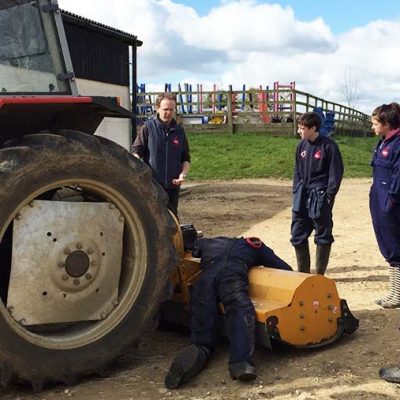A farm safety chief has pleaded for farmers to wear helmets when riding quad bikes. Rick Brunt, an agricultural safety boss, has told farmers to take heed of the simple life saving advice to wear helmets while riding quad bikes. The call comes following the emergence in court proceedings of an horrific incident in which a teenager suffered serious head injuries. The 17 year old farm worker from Shap, Cumbria, was trapped for an hour underneath an overturned quad bike, resulting in a head wound that required 17 stitches. On June 20, Carlisle Magistrates’ Court heard that the family partnership JF & M Bland had contracted the worker to carry out general duties in agriculture and he was given instruction to use the company’s quad bike to reach a large sloping field. He did this without any prior training and no helmet provided for him to wear and after the vehicle overturned it is estimated that it took around an hour before one of the partners of the firm found him. Following an investigation of the incident’s circumstances, which happened in April 2014, the Health and Safety Executive made the decision to prosecute JF & M Bland, of Dacre, Penrith, for breaching laws of health and safety. The company pleaded guilty to a breach of Regulation 9 (1) of the Provision and Use of Work Equipment Regulations 1998, resulting in a fine of £6,000 and an order to pay costs of £4,693. HSE’s Head of Agriculture, Rick Brunt, said that accidents relating to vehicles are a major problem in the agricultural sector and are one of the biggest causes of death. He added that only those who have received adequate training should operate all terrain vehicles such as quad bikes. Meanwhile, HSE inspector Matthew Tinsley, commented that this incident should serve as a timely reminder to all farm workers that such risks are not worth taking.





